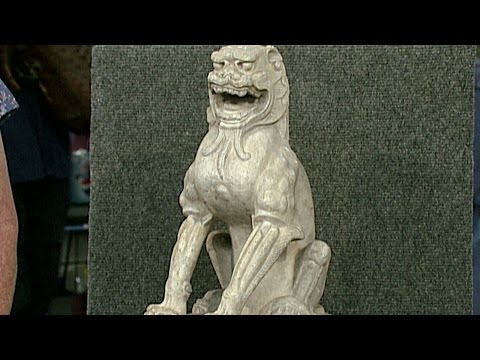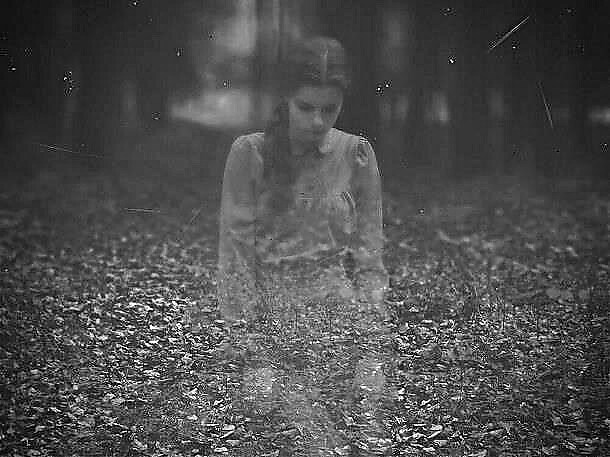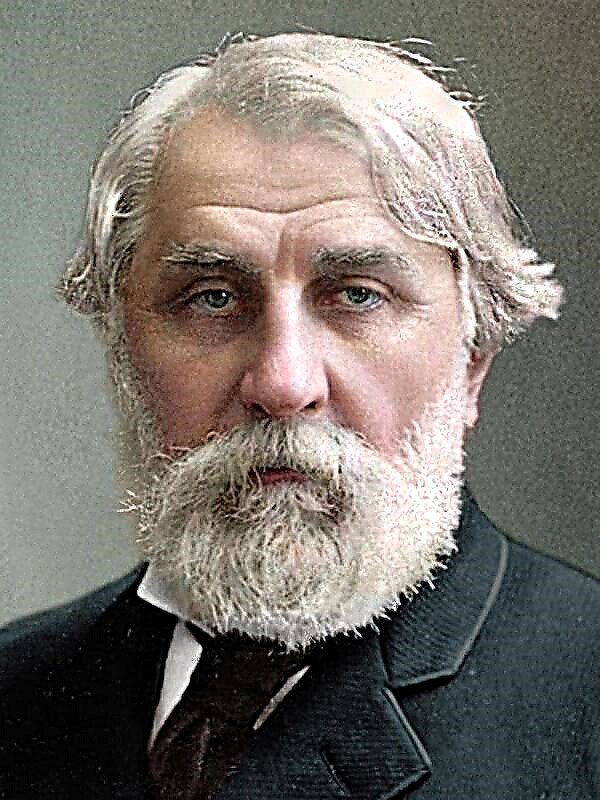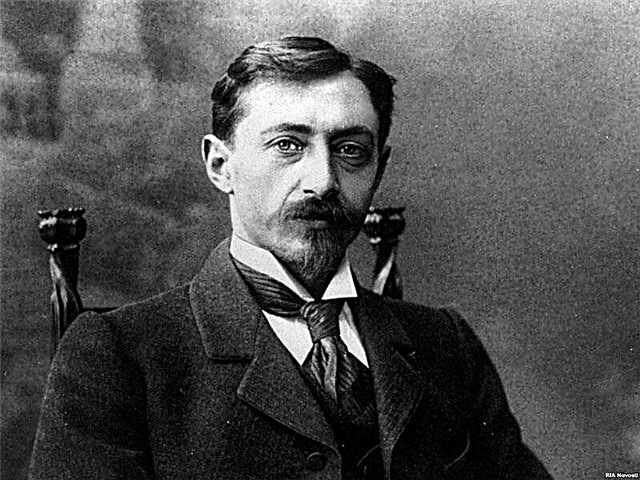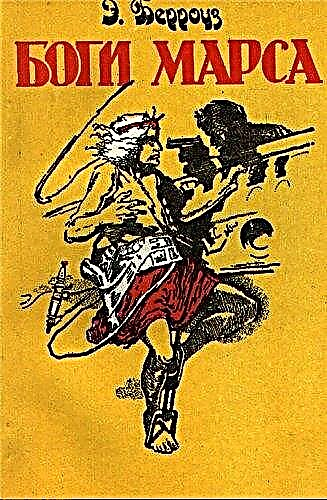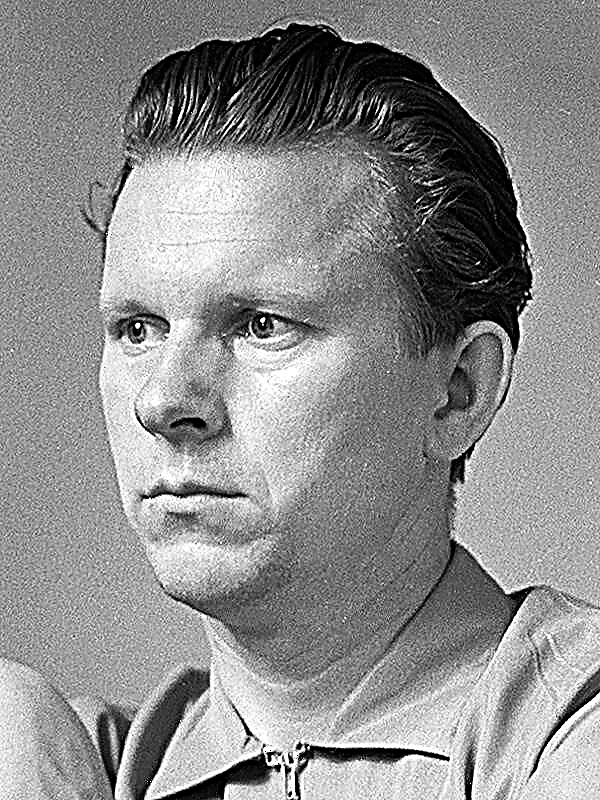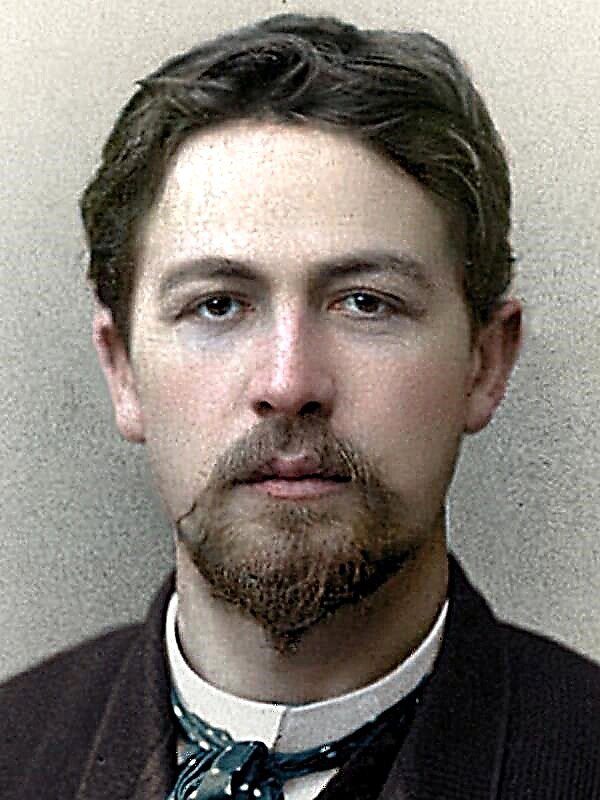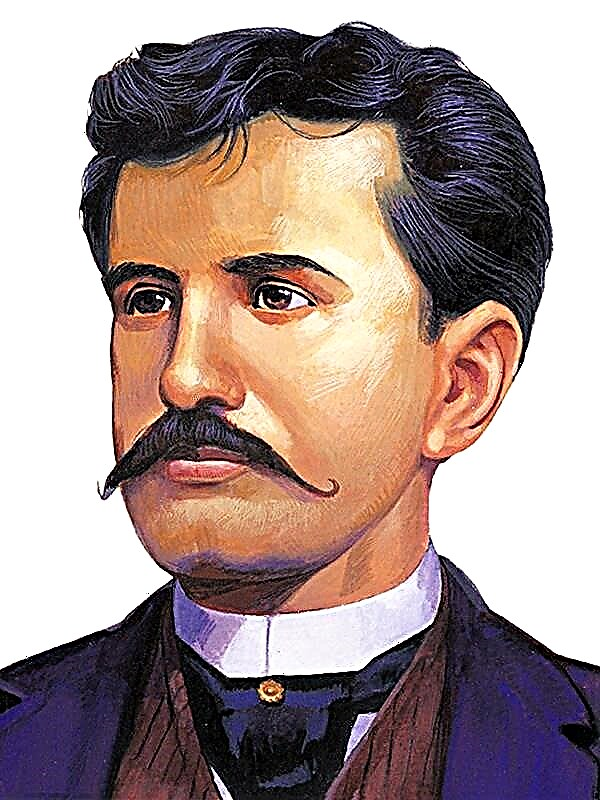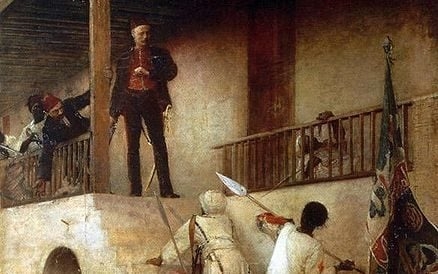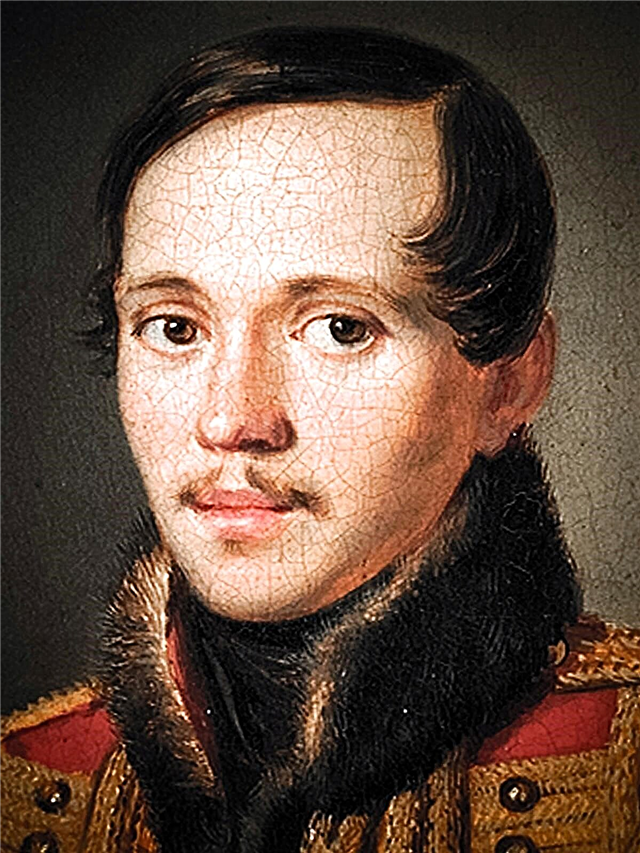The action takes place at the beginning of the XVIII century in Switzerland.
One fine day in the village of Glattfelden, which is located somewhere in the north of Switzerland, a stately and handsome stranger appears, dressed in a green frock coat. This is master Leah. Once upon a time, he left his native village and set off to wander the world.
Having made his way from an apprentice to a skilled stonecutter and architect, having worked in all the big cities of Germany, he returns to his homeland. Here, the master Leah decides to try his luck in the capital and establish his own business in Zurich. Before moving to the city, he marries the daughter of a rural pastor.
Upon arrival, the young architect not only works hard and hard, but also takes part in public life. Unfortunately, death overtakes him in his prime.
Master Leah left many unfinished business to his widow, and, after they were put in order, it turns out that the whole state of the family is only one house. It is inhabited from top to bottom like a hive. It is the income from the residents that helps the widow Leah and her son, named Henry, make ends meet.
In this house, the boy for the first time realizes himself as a thinking creature. At an early age, he begins to think about what God is. Once he refuses to pray, just like the girl Meret, whose story will strike Henry’s imagination many years later. The girl refused to pray and was tortured to death by a certain pastor.
Henry meets an old woman named Mrs. Margret. He spends a lot of time in her shop, listening to stories about ghosts, sorcerers, evil spirits, etc.
Henry is seven years old, and his mother sends him to school. Two of his suits were changed from the green military uniform of his father. Therefore, the boys of our hero are nicknamed "green Henry." At school, he first encountered such concepts as lies, arrogance, boasting.
Henry spends a lot of time alone with himself, in his secret childhood world. Like many of his peers, he catches butterflies and bugs, collects colorful stones. Once having seen a menagerie, Henry decides to create the same in himself. In his menagerie, sparrows, a rabbit, a mouse, several lizards, spiders, snakes. But one day, Henry decides to kill animals: alive, he buries his pets in the ground.
Once in the anatomical museum at the hospital and seeing vessels with embryos in it, he decides to create something similar at home. Heinrich sculpts embryos from wax and puts them into bottles from under the cologne and alcohol. He gives a name to everyone. To each of them he compiles a horoscope, according to a certain theosophy textbook, which he found in the house of Madame Margrethe. But this world is dying: defending itself from an angry cat, Henry throws his wax freaks into it.
Finally, silent games alone with oneself bother Henry. He agrees with the company of boys. Together they stage theatrical performances, and when a troupe of German actors arrives in the city and gives the performance “Faust”, Henry also takes part in the performance. He plays the role of a fur seal.
At the age of twelve, Henry entered a real school. Among the sons of wealthy citizens, our hero feels like a stranger. To become like everyone else, Henry steals silver coins from his mother’s savings. When a hero accidentally takes part in an obstruction to an unloved teacher, his companions pass him off as "the main instigator of outrage." As a result, Henry was expelled from school. Now free from classes, he discovers a passion for drawing and tells his mother that he wants to become an artist. Mother opposes this and decides to send Henry to the village with his brother pastor. Here the young hero meets a young widow named Judith. Sharp, inexpressible pleasure embraces Henry when he is next to her.
And in the village, Henry continues to draw. He often goes into the woods, where he draws trees and forest streams from nature. For this, relatives call him "artist." Once the hero enters the house of a rural teacher. There he meets Anna, his daughter. In his heart, Henry takes her bright, unearthly image.
In one of the letters, Henry again informs his mother of his intention to become an artist. Ms. Leah turns to different people for advice on how to deal with her son, but from no one, however, she does not receive an sensible answer. Meanwhile, in the village of Henry continues his studies in painting. He gives several of his drawings to Judith. But his heart belongs to Anna. Green Henry becomes a frequent guest at her father's house.
Meanwhile, Henry's grandmother is seriously ill and dying. At the wake, according to ancient custom, Anna and Henry perform a dance. After a sad ritual, our hero escorts Anna home. Their path lies through the cemetery. And here, among the graves, they kiss for the first time.
Henry needs to return to the city. He becomes a student of a certain engraver Haberzaat, an artisan from art, creating lurid Swiss landscapes according to one standard: festive blue skies and emerald green landscapes. Heinrich does not like copying from samples of Habersaat at all.
When our hero goes back to the village next summer, hoping, of course, to see Anna, he is disappointed: his beloved has left to study in French Switzerland. Henry writes to Anna long love letters, but does not send them. The most passionate of his letters, he lets go down the river, thinking that no one will read it. However, the bathing Judith finds this letter.
Our hero returns to the city, where he continues his "training" in painting. But Henry does not want to be a craftsman, he breaks with his mentor and reports this to his mother.
In the spring of next year, Henry again sent to the village and met with Anna, who returned to her homeland. However, now their relationship is much colder than before. The refined manners inculcated by Anna abroad scare Henry away. Every time the hero sees Anna, he feels shy and does not dare to enter into a conversation with her. He often retires to the forest more often, where he paints a portrait of his beloved. For the first time he knows the love of languor.
Time is running fast. And then another six months passed. Shortly after Christmas, Heinrich receives an invitation from his uncle to take part in the celebration: several villages joined together to celebrate Shrovetide with a grandiose theater performance. The presentation is based on the Schiller Wilhelm Tell. Anna plays the role of Berthe von Bruneck, Heinrich gets the role of Ulrich von Rudenz.
Returning from the holiday, Henry, seized with passion, begins to shower Anna with kisses, but the girl breaks out of his arms. A strange feeling embraces Henry: it seems to him that he is holding an infinitely distant and lifeless object in his arms.
After seeing Anna, the hero enters the tavern on the way home, where village youth have fun. In the tavern, he meets Judith, who invites him to his place. Judith shows Henry his letter addressed to Anna, and demands that he, without hiding, tell her the whole story of his relationship with the daughter of the teacher. Suddenly, Judith hugs Henry and begins to kiss him. Heinrich reciprocates her, but suddenly the image of Anna arises in front of our hero, he breaks out of the arms of a young woman and runs away, promising himself never to see Judith again.
Returning to Zurich, Henry finally finds himself a worthy teacher of painting: he becomes a famous and talented watercolorist named Roemer (which means “Roman” in German), who has just returned from Rome. Under his leadership, Henry begins to do complex and meaningful work. After some time, it turns out that Roemer suffers from a severe mental illness. He suddenly leaves for Paris, where, according to rumors that have reached Henry, he spends the rest of his days in a mental hospital.
Once, a rural teacher with his daughter comes to visit Henry's mother. Anna was seriously ill, and her father brought her to the city to show her to doctors. When they are about to return to the village, Henry announces his intention to interrupt his painting classes and go with them.
He spends all days in the house of the village teacher at Anna’s bed. In the evenings, breaking his promise, he secretly meets with Judith. Anna's health, meanwhile, is deteriorating. She almost never gets out of bed. After a while, Anna dies. When at the funeral, the last ray of sunshine illuminates the face of the deceased, lying surrounded by white roses, Henry suddenly feels almost happy: as if with Anna was found buried part of his life, part of his experience.
Immediately after the funeral, Henry hurries to Judith. He forever says goodbye to his girlfriend and returns to the city with his mother.
Henry turns eighteen years old. He is subject to military service. One day, a large wagon rides along the road that crosses the parade ground for military activities. Such wagons, loaded to the brim with all good, serve as a means of transportation for families bound for America. Among the settlers, Henry sees Judith.
To continue his artistic education, Henry goes to Munich. Unfortunately, due to lack of funds, he does not have the opportunity to study at the Royal Academy, but he meets two young painters: a Swede Erickson and a talented Dutchman named Luce. Together they take part in the festival of artists. Henry and his friends portray the heroes of ancient myths: Luce is dressed as the Assyrian king, Erickson as the leader of the retinue of the hunting goddess, Rosalia, his beloved, rich young widow, portrays Venus, and Agnes, the girlfriend of Luce, rides on a chariot in the form of Diana.
After the holiday, Luce tries to seduce Rosalia, promising to give up, forget Agnes. Not only Erickson, with whom, as it turns out, Rosalia is already secretly engaged, but Henry becomes a witness to this scene. And when our hero tries to intervene for the honor of Agnes, Luce challenges him to a duel. Then he takes his call back and informs all those present about his intention to leave Munich ..
Erickson and Rosalia get married and soon leave Munich. Henry is left alone.
He continues his education, attending lectures on anatomy, studying philosophy, history and literature. Soon, he gained a certain fame in student circles, but a free life leads to the fact that our hero is in the power of creditors. He unsuccessfully tries to sell one of his paintings. The mother of the hero not only sends Henry his last savings, but also lays his house. Her money is enough for Henry for a short while. For several days in a row, Henry was forced to starve. The hero sells his flute and some of the drawings for nothing. He is forced to work with a certain junkman, painting flagpoles for the holidays. His joyless existence brightens up his friendship with the maid Hulda.
Suddenly, the mistress of the house where Henry was staying dies. In addition, the hero meets his compatriot, who makes a honeymoon in Europe. He tells Henry about his mother. After this meeting, Henry sees a dream in which his mother calls him to her. Henry decides to return to his homeland.
For several days Henry wanders along the road. Tired, he wants to spend the night in a church. But the pastor drives him away. The weary Heinrich sits on a garden bench in the middle of the cemetery. There he finds the daughter of Count Dietrich V ... Berg Dorothea Schonfund. She leads him to the castle of the counts, where, amid a large collection of paintings, Henry, to his great surprise, finds his creations.
In the castle, Henry tidies up the collection of paintings by the count, falls in love with Dorothea, with whom he debates with the local pastor. Here he meets the atheist Peter Gilgus, professing the teachings of Ludwig Feuerbach. On the advice of the Count, Henry again decides to put up his paintings for sale, and two of them are bought by his Munich friend Erickson. Suddenly, Henry receives the inheritance of a junkman, whom he once worked for. Having become rich, he makes the final decision to return home. His mother is near death, and when Henry enters her room, the priest is already reading a prayer over her.
After the death of his mother, Heinrich Leah enters the public service. His life now flows quietly and measuredly. But his soul is devastated, more and more often Henry is pursued by the desire to settle accounts with life. By chance, he meets Judith, who, having become rich, has returned from America. Judith declares love to Henry.
For twenty years, Henry and Judith have been living together. During the deadly epidemic, Judith, helping the children of the poor, is seriously ill and dies.

